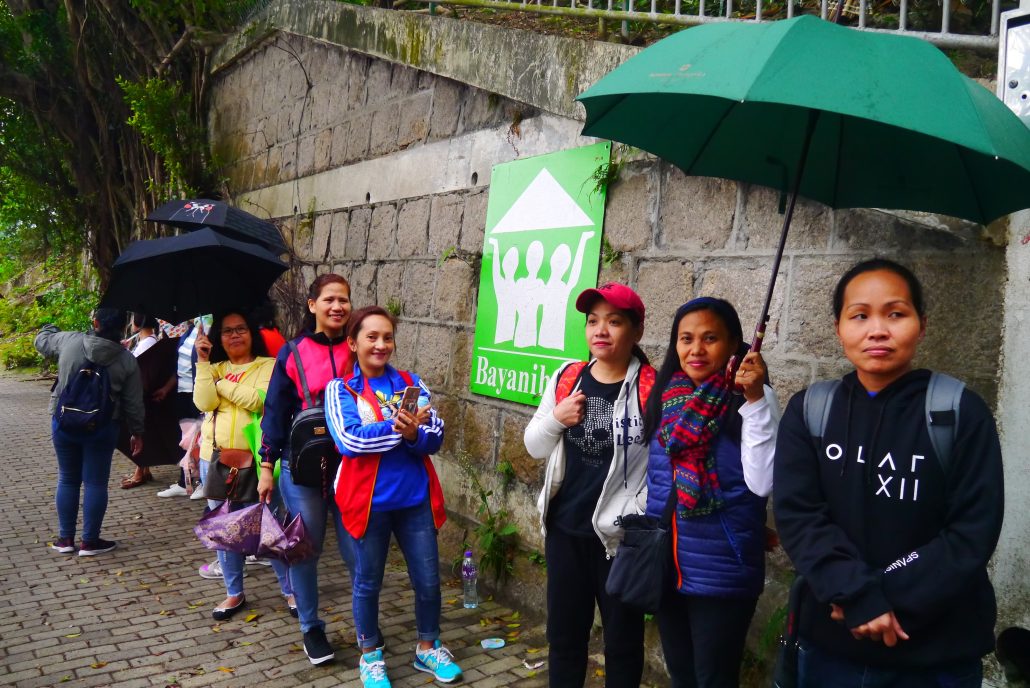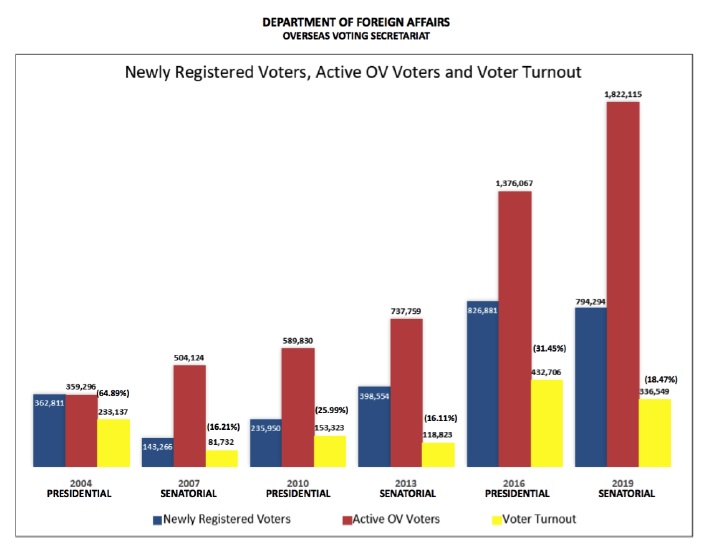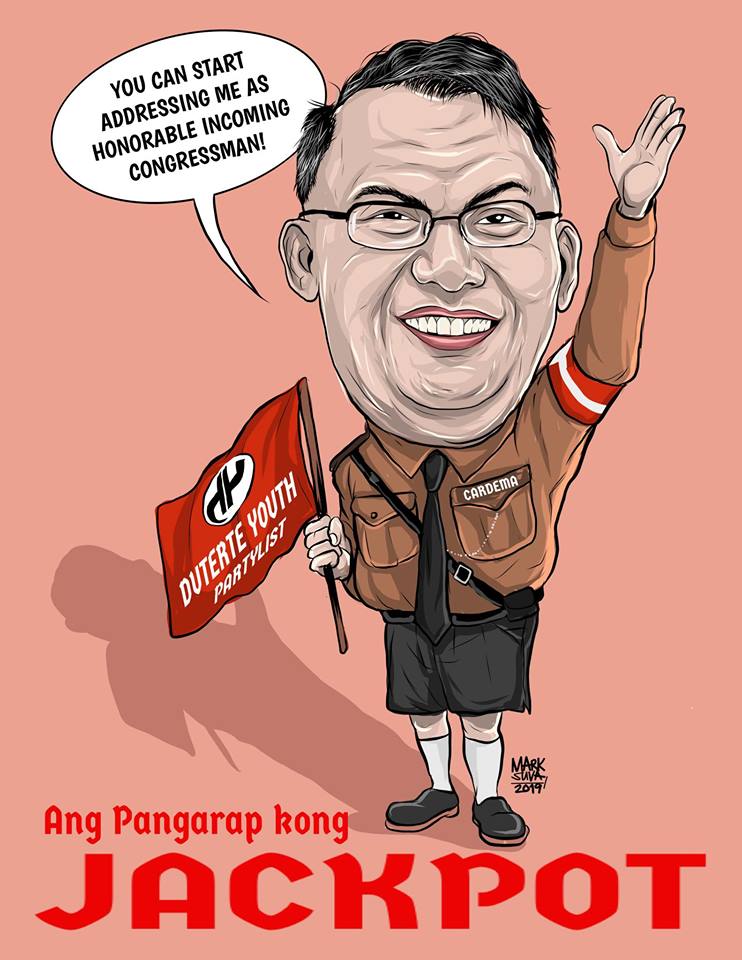THE CURIOUS CASE OF ROGIE SENDING: Investigation or bullying?
Something wrong is happening in the bowels of the House of Representatives compound where a veteran broadcaster had been languishing in detention since August 17. Rogelio Sending, known to his listeners in Tuguegarao City and, until a few years back in Metro Manila, as Bombo Rogie had been ordered detained there for 30 days.
Sending’s plight had been largely unreported by the press, except in Cagayan province and on social media. Ordinarily, such an occurrence to a member of the working press would gather immediate and widespread condemnation, as it should. But there was hardly a peep because Sending is no longer an organic employee of the network that he served for years but is now Cagayan’s provincial information officer. While he still graced the airwaves until last August 8, he was in fact an anchor of his daily radio program in behalf of the provincial government. On many days, he shared the radio booth with his boss, Cagayan Governor Manuel Mamba. Technically, Sending has left the ranks of the working press since 2019 and is now a civil servant.
Sending’s troubles started when the House Committee on Suffrage and Electoral Reforms jointly with the Committee on Public Accounts, following a privileged speech by Cagayan Third District Representative Joseph Lara, launched an investigation on alleged violations on the ban on public spending during an election campaign period. The meat of the allegation is that Mamba ordered his capitol employees to withdraw hundreds of millions and distribute these as financial aid to Cagayanos mere days before the May 9, 2022 local elections. Under the laws—even though the Commission on Audit said it appears the entire amount had been accounted for—that is prohibited.
Lara alleges that Mamba did not only commit graft but vote buying as well. And so the committees have summoned the governor and several other provincial government employees since March. Early on, Mamba submitted himself before his nemesis and the committees, several members of which were his colleagues when he was congressman himself. But the governor refused to answer their questions, citing a case of the same nature had been filed before a local court and providing answers may violate the sub-judice rule. The congresspersons had no choice but to excuse him but went after his subordinates in subsequent hearings.
Congress has the powers of the Constitution in conducting such investigations, and it should. That the government is very corrupt and graft-ridden is no longer a matter of debate. But there is much to be said on how congressional investigations and hearings are conducted. The investigation on Mamba is no different.
During the hearings, majority of the congresspersons went after Mamba’s subordinates with venom. The capitol employees were shouted at and could hardly get a word in even as they were simply trying to answer the congresspersons’ questions. They were reduced to stuttering most times, making them appear more guilty than Dismas and Gestas. Granting that it appeared the employees tried to cover up for their boss, the way the congresspersons treated them is plainly un-parliamentary.
Sending had been summoned to appear before the committees on August 7 and 9 but failed to do so on both dates. When he finally presented himself last August 12, he received even worse treatment than his colleagues. He tried to explain that contrary to allegations that he is not Kapisanan ng mga Brodkaster ng Pilipinas-accredited broadcaster, he, in fact, is. He proved that he did not go on air on August 9 when he was supposed to be present in the hearing. Sending tried to explain that the reason why he failed to appear in previous hearings was because Cagayan was at the time recovering from the effects of Typhoon Egay and he was ordered by the governor to document relief efforts being conducted. Moreover, Sending said, he was confused as to whether he is allowed to absent himself from his duties in the province and had to wait for clear instructions from the capitol’s legal office.
But in failing to appear, Sending offended the high and mighty. On top of the very public flagellation he received, he was meted the extraordinary punishment of 30 days of detention for contempt of Congress.
Let us not talk here of the Paduanos, the Marcoletas and the Acops who, as hearings in both houses of Congress go, are of the same mold as their upper chamber colleagues, the Batos, Tulfos, Villars and Padillas. Let us instead talk about their colleague who started all these.
Lara, instigator of the so-called investigations, is Mamba’s political nemesis in the province of Cagayan. Lara’s wife was Mamba’s rival in the last local elections who lost badly to the latter. It is therefore not hard to see one other very compelling motive in all these.
Those who closely follow the proceedings could see that Lara’s complaint has a point. Mamba could have ordered the distribution of aid way before or even after the May 9, 2022 polls. It is not farfetched that his candidacy benefited from the aid distribution. The fact that his subordinates scrambled to withdraw the funds even without the expressed permission of the Sangguniang Panlalawigan adds weight to the allegations.
[On a possibly related issue: Is Mamba’s flagellation also intended to force him to withdraw his opposition to the two new EDCA sites in his province?]
But there is hypocrisy here. Who believes that traditional politicians do not buy votes, in Cagayan and in the entire country? I heard that a party in these investigations even pioneered the use of QR (quick response) codes in vote buying.
Congressional investigations are important in giving representatives a chance to craft better laws and to expose shenanigans in government. But these noble purposes are in danger of being seen as nothing more than witch hunt and self-serving vendetta when the real targets are missed and only foot soldiers are bleeding in the field of battle, in a manner of speaking.
I think the investigations on the misspending of public funds during the last elections in Cagayan have already established that those should not have been distributed when they did. But the fact that an information officer—one who absolutely had no power over said funds and had no hand in distributing them—is now suffering for it, is wrong. Governor Mamba is as powerful as his enemies, Sending is not.
Making underlings suffer when the real target is still out there is not judicious exercise of power. That is simply bullying. # (Raymund B. Villanueva)






